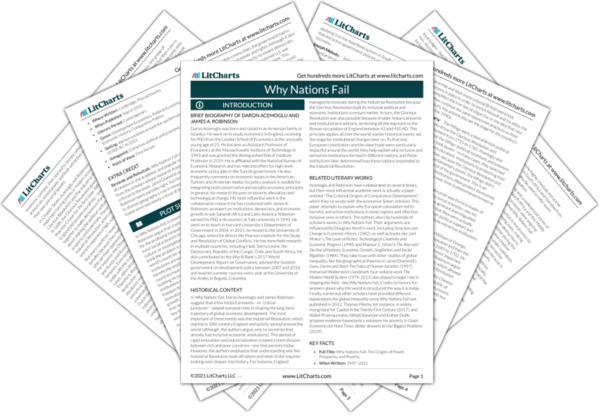Deng Xiaoping Quotes in Why Nations Fail
The changes in economic institutions in China were radical. China broke the mold, even if it did not transform its political institutions. As in Botswana and the U.S. South, the crucial changes came during a critical juncture—in the case of China, following Mao’s death. They were also contingent, in fact highly contingent, as there was nothing inevitable about the Gang of Four losing the power struggle; and if they had not, China would not have experienced the sustained economic growth it has seen in the last thirty years. But the devastation and human suffering that the Great Leap Forward and the Cultural Revolution caused generated sufficient demand for change that Deng Xiaoping and his allies were able to win the political fight.

Unlock explanations and citation info for this and every other Why Nations Fail quote.
Plus so much more...
Get LitCharts A+
Deng Xiaoping Quotes in Why Nations Fail
The changes in economic institutions in China were radical. China broke the mold, even if it did not transform its political institutions. As in Botswana and the U.S. South, the crucial changes came during a critical juncture—in the case of China, following Mao’s death. They were also contingent, in fact highly contingent, as there was nothing inevitable about the Gang of Four losing the power struggle; and if they had not, China would not have experienced the sustained economic growth it has seen in the last thirty years. But the devastation and human suffering that the Great Leap Forward and the Cultural Revolution caused generated sufficient demand for change that Deng Xiaoping and his allies were able to win the political fight.

Unlock explanations and citation info for this and every other Why Nations Fail quote.
Plus so much more...
Get LitCharts A+








